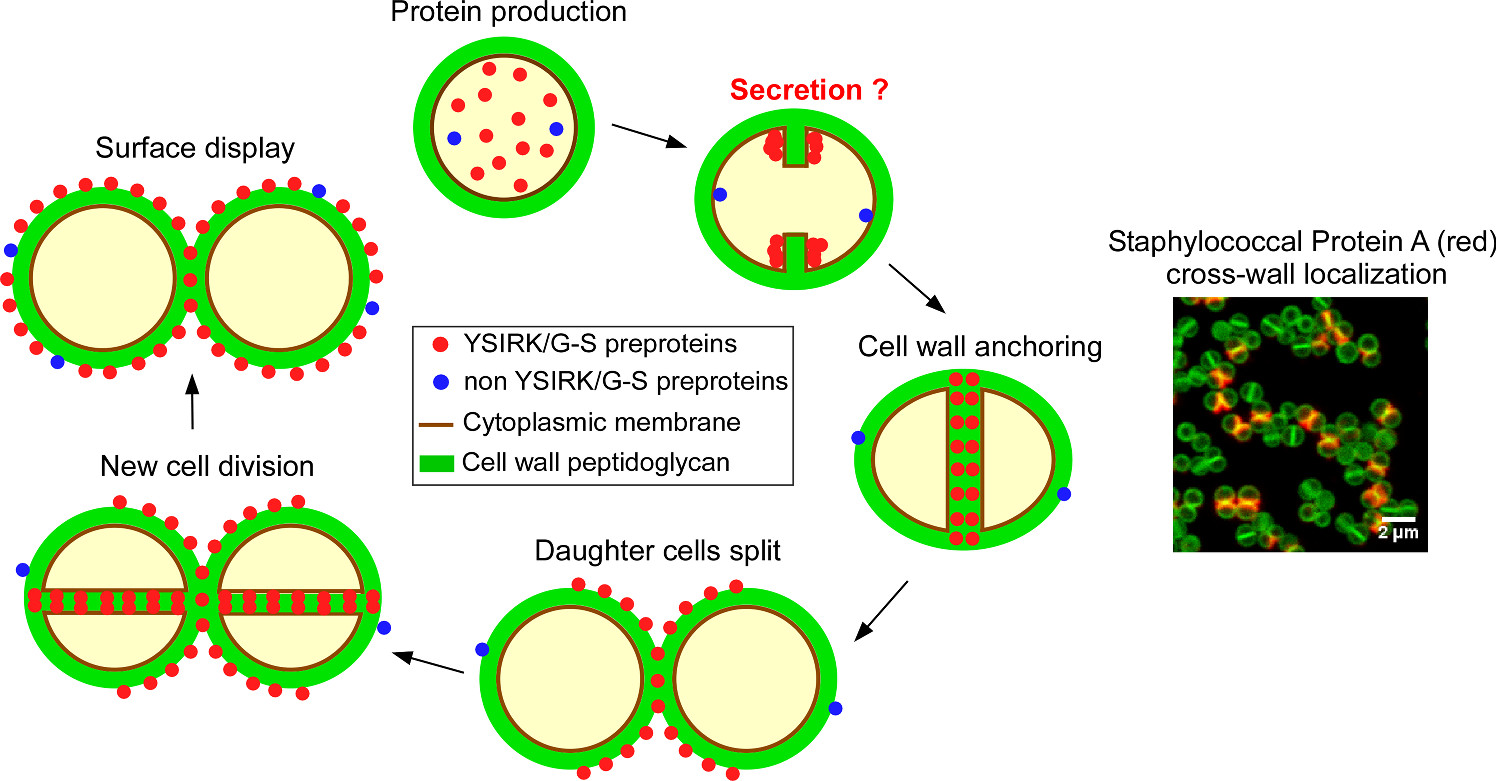|
|
Research |
|
|
With a long-term
research interest in staphylococcal physiology and
pathogenesis, our lab focuses on studying the cell
envelope of Staphylococcus aureus. S.
aureus is one of the most important pathogenic
bacteria, responsible of causing various infections
such as skin and soft tissue infections, pneumonia,
endocarditis, osteomyelitis and life-threatening
sepsis. To be such a successful pathogen, S.
aureus is capable of producing and secreting an
arsenal of virulence factors. Most of these virulence
factors are secreted or cell wall anchored surface
proteins. Our lab studies the secretion and
localization of some of these proteins that contain
the YSIRK/G-S signal peptides. Proteins with YSIRK/G-S
signal peptides are secreted at the septa where
staphylococcal cells divide, and are deposited into
the cross wall during cell division. Upon cell
separation, proteins with YSIRK/G-S signal peptides
are distributed over the bacterial surface and
fulfills many different virulence functions.
Currently, we are investigating the mechanisms
supporting septal trafficking of YSIRK/G-S proteins in
S. aureus. The understanding of how these proteins are
secreted will form the basis for developing novel
therapeutics to combat staphylococcal infections.
 |
|
© 2019 Wenqi Yu, Rocky D. Bull and USF |